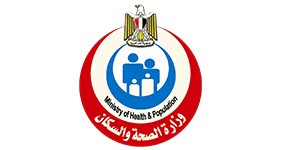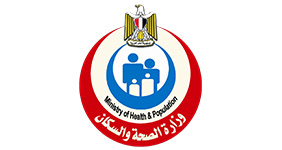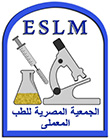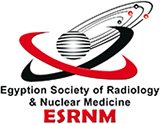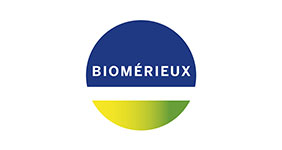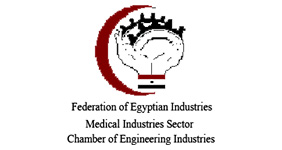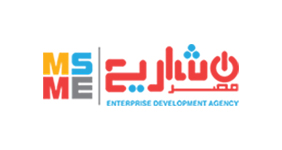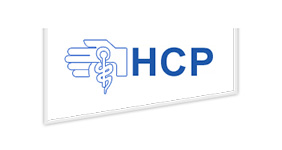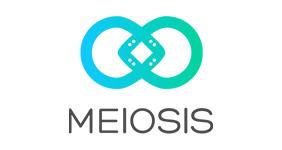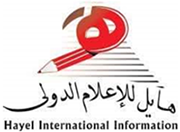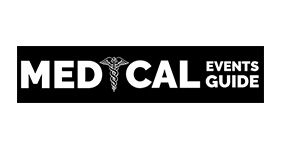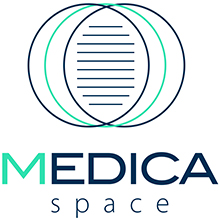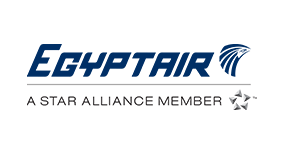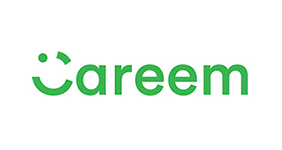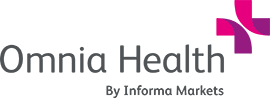Digital health in North Africa
A report by North Africa Health
“Harnessing the power of digital technologies is essential for achieving universal health coverage. Ultimately, digital technologies are not ends in themselves; they are vital tools to promote health, keep the world safe, and serve the vulnerable.”
WHO Director-General, Dr Tedros Adhanom Ghebreyesus
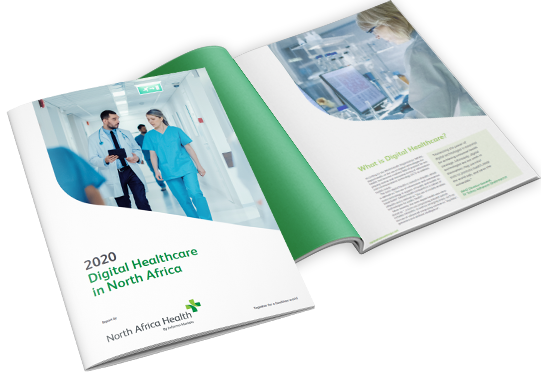
View the report to find out more
What is digital health?
According to the World Health Organisation (WHO), digital health, or the use of digital technologies for health, has become a salient field of practice for employing routine and innovative forms of information and communications technology (ICT) to address health needs.
The term digital health is rooted in eHealth, which is defined as “the use of information and communications technology in support of health and health-related fields”. Mobile health (mHealth) is a subset of eHealth and is defined as “the use of mobile wireless technologies for public health”.
More recently, the term digital health was introduced as “...a term encompassing eHealth (which includes mHealth), as well as emerging areas, such as the use of advanced computing sciences in ‘big data’, genomics and artificial intelligence”.
Digital health as a transformation agent
Digital health is a multifaceted field, much of which is made up of technologies and services that enable healthcare outside of traditional clinical settings. It follows a global trend in the healthcare industry of decentralisation to alleviate overburdened hospitals and clinics.
According to the U.S. Food & Drug Administration, providers and other stakeholders are using digital health technologies in their efforts to:
- Reduce inefficiencies
- Improve access
- Reduce costs
- Increase quality
- Make medicine more personalised for patients.
Digital health offers a solution to problems such as escalating healthcare costs, shrinking profit margins, increasing prevalence of chronic diseases and ageing populations suffering from chronic conditions. This, coupled with anticipated shortages of physicians and medical staff, will compel all industry participants to embrace digitalisation as the foundation of the next generation of patient access, clinical decision support, workflow management, and population health management.
For developing nations, this shift to embrace digitalisation of healthcare services will require a transformation in every part of the existing healthcare system – from providers to payers. And as Egypt begins the rollout of its health insurance system reform, and Morocco endeavours to execute a health insurance system that will cover approximately 90% of the Moroccan population by 2021, many North African countries are looking towards digital transformation to offer solutions for modernising their national health systems.
Global digital health industry outlook
According to the Frost & Sullivan Global Digital Health Outlook 2020 report, the healthcare industry’s steady shift toward improved patient outcomes, cost containment, and value-based care is expected to drive the global digital healthcare market from an estimated US$147 billion in 2019 to US$234.5 billion in 2023.
As digital health grows, the need for cybersecurity will accelerate as well. Regulators in the United States and other countries will impose hefty fines and penalties on those healthcare providers that do not adequately protect patient data from the constant threats to patient privacy and data security, the report continues. Femtech and digital therapeutics will also grow as opportunities in both medical-grade, and mass-market products and solutions offer new ways to manage health.
Top trends and drivers for the global digital healthcare market:
- The focus on offering valuable and improved services to the patients
- Increasing adoption of a more customer-centred business model
- The mergence of favourable government initiatives and funding options in various countries across the globe
- Increasing penetration of smartphones and other tech-enabled devices
- Consumer appetite for increasing amounts of personal health information
- Mounting adoption of various healthcare IT solutions by healthcare providers to meet the intensified regulatory requirements for patient’s care and safety
Source: Source: Market Research Future
Which digital technologies are disrupting the North African healthcare market?
Artificial Intelligence (AI)
One of the key areas of advancement in healthcare is, of course, artificial intelligence (AI), which refers to intelligent applications that assist with the diagnosis of disease, treatment recommendations, as well as data management, improving online consultations, speeding up drug development, and improving doctor and medical student training.
Similarly, machine learning (ML) is an application of AI wherein the system looks at observations or data, such as examples, direct experience, or instruction, figures out patterns in data and predicts events in the future based on the examples that we provide.
According to an article published in the MIT Technology Review, which examined what AI means for Africa, needed and unmet care like diagnostics can be automated to cut down cost and also empower the few available health workers to do more. The article also highlighted that data analytics could be used to gather health data to accurately diagnose patients and provide precise treatment as part of evidence-based healthcare. And also, it would allow African countries to more accurately monitor population health and track early symptoms of outbreaks. This can guide evidence-based policymaking.
Egypt is aiming to have 7.7% of its GDP derived through AI by 2030, according to the PwC report - The Potential Impact of AI in the Middle East. The Egyptian government has been investing in building AI capability in the country; developing a national AI strategy aimed at guiding development and research of the use of AI in priority areas including education, smart cities, healthcare, infrastructure and transport, among others.
Big Data
Over the last decades, there has been growing enthusiasm for the potential usefulness of these massive quantities of data, called Big Data, in transforming personal care, clinical care and public health.
In an article by Pastorino, R. et al., published in European Journal of Public Health, the authors describe the potential of Big Data in healthcare as relying on the ability to detect patterns and to turn high volumes of data into actionable knowledge for precision medicine and decision-makers. In several contexts, the use of Big Data in healthcare is already offering solutions for the improvement of patient care and the generation of value in healthcare organisations.
For the African region, despite the prevailing challenges and limitations, there is evidence that big data analytics has the capacity to transform the healthcare system in Africa. According to an article by Akinnagbe, A. et al. published in the Global Journal of Health Science, preliminary application in the public health system, especially when epidemics happen, is proven evidence of its potential benefits in the African healthcare system.
Unfortunately, not much use and benefit have been reported in non-communicable and chronic diseases in Africa, unlike in developed countries. However, with an increase in the use of mobile technologies and social media in Africa, coupled with emerging investments into big data technology, it is likely that we will witness a rapid, extensive implementation and use of big data analytics in healthcare across the Africa continent as big data analytics becomes an emerging and cost-effective tool in improving global healthcare.
Evidence of this can be seen as the United Nations Educational, Scientific and Cultural Organization (UNESCO), the International Telecommunication Union (ITU), and the United Nations Technology Innovation Labs (UNTIL), in partnership with Health 2.0 Egypt, launched a data analytics challenge in September 2019 to identify interventions for lifestyle changes that prevent chronic diseases in Egypt.
Telehealth
Telehealth has the potential to bring healthcare within reach of more people. It enables care to be delivered quickly across distances and enables more healthcare professionals to deliver the right care to the right patient at the right time.
In recent years, there has been a rapid increase in the use of information technologies in the health sector and tools such as telemedicine and e-health have been recently incorporated to facilitate access to essential services in North Africa. However, according to a review of the evolution of telemedicine and e-Health in North Africa by De La Torre Diez, I. et al., published in Trends Telemed E-Health, despite their potential benefits-in the North African countries, the experience with these systems has been limited, and there have been numerous obstacles, such as doctor shortage and technological barriers.
The authors highlight that the emergence of telemedicine can be seen as an opportunity for national health authorities in North Africa to renew the formulation of medical policies and actions in response to the need of improving health services (such as quality and safety) in rural communities.
In Egypt, one example is the Ain Shams University Virtual Hospital is an institutional telemedicine service provider operating via a “Treat and Teach” initiative, and serving Egypt, Arab countries and the African continent. It aims to provide equitable healthcare to the region in a sustainable model. The service offers medical consultation service to remote areas that are deficient in specialists. Parallel, it provides applied health education for health professionals to yield competent local champions who can operate, at some point, independently their health services.
Meanwhile, in November 2018, Morocco launched the experimentation phase of its telemedicine project. Steered by Société marocaine de télémédecine (SMT), the project was first deployed in the health centres of Anfgou and Imilchil in the Midelt province Zaouïat Ahensal in Azilal province with the aim of being extended to further sites. With its telemedicine project in rural zones, the result of a partnership between Morocco’s ministers of health, interior and national education, as well as medical units under the royal armed forces, the telecommunications regulatory agency and Mohammed VI University of health sciences, Morocco aims to serve 160 rural communities, representing about two million people having difficulties in accessing quality health services.
mHealth
Mobile health is the monitoring and sharing of health information via mobile technology – such as wearables and health tracking apps. The use of mobile devices and wireless technology to monitor symptoms and deliver care allows physicians to make diagnoses quicker and with fewer errors. By embracing mobile health, or mHealth, patients are able to keep track of their own health data in real-time and inform healthcare providers of any abnormalities at the push of a button.
In 2016, WHO and the International Telecommunication Union launched a groundbreaking national programme “mDiabetes” to harness mobile technology to serve diabetic patients in Egypt. While mobile technology-based health and development projects are not new to Egypt, the mDiabetes programme was unique due to its scale. Most countries have been limited to small-scale pilots, which limits the technology’s impact and value to public health. But in Egypt, the mDiabetes programme is capable of reaching millions of people.
Electronic Health Records (EHR)
EHR is defined as a collective electronic record of the patients’ health information that includes the patient medical history, medication prescriptions, physical examinations, medical reports, and notes of the healthcare professionals ensuring the standardised readable complete orders (Campanella et al., 2016). The primary purpose of the EHR is to support continuing, efficient and quality integrated healthcare. An EHR system includes data management tools to decision support and analysis of aggregate information both for care management and for research.
Benefits of EHR:
- A paperless hospital environment
- Medical records are easily accessed and updated and stored electronically
- Medical information is available whenever and wherever needed
- Improves productivity and save time
- Patient data can be shared with physicians and patients
- Reduces manpower and labour expenses
- Enhances the hospital’s workflow by quick access to patient health information
In the developed world, with records systems now widely implemented, providers are striving to enable the technology to be more interactive and responsive to clinicians’ needs, which is expected to have a huge impact on how care is delivered. New platforms and infrastructure innovations will be made to allow hospitals to finally get a handle on messy, unstructured data in order to take advantage of new AI advances. This will help automate more clerical busy work for doctors, including documentation and repetitive tasks related to clinical care and billing.
Meanwhile, in the developing world, there is a need for the implementation of Information Technology (IT) in the health sector. In Morocco, for example, while a nationwide EHR system is yet to be developed, there were several initiatives launched to reform the country’s Hospital Information System (HIS) including the establishment of a new HIS’s in University Hospital Center – Fez and Sheikh Zaid Hospital – Rabat.
In Egypt, UK-based telecoms operator Vodafone has won a GBP 100 million project to develop a digital healthcare service platform to support the rollout of the country’ universal health insurance scheme. The IT solution, created in partnership with DXC Technology, is part of the Egyptian government’s effort to establish a new primary healthcare system mirroring that of the UK's National Health Service (NHS).
Digital health startups making waves in North Africa
D-Kimia
Cairo-based D-Kimia develops novel and affordable diagnostic solutions to detect a broad range of diseases, initially focusing on the identification of the hepatitis C virus (HCV) that affects over 170 million people worldwide. The low resource setting diagnostic solutions are rapid, affordable, and simple to use, and provide the same level of specificity as the most advanced Polymerase Chain Reaction (PCR), and other amplification-based diagnostic techniques.
Shezlong
Shezlong was launched in Egypt and is a mental health platform that enables patients to talk to their therapist online, privately anytime, anywhere. The web platform allows you to search on a community of therapists and customise your search results to find what you need. Reserve your session from available dates and pick the suitable payment method and talk to your therapist online privately.
Smart Medical Services
Launched in 2010 in Egypt, Smart Medicare Care offers corporate clients customised and discounted health care plans with access to over 400 health care providers (hospitals, clinics etc.) through innovative, tailored software solutions and streamlined operations. It also targets providing healthcare solutions for underprivileged and non-insured classes through a socially inclusive business model. The startup deployed an Android application SMART on Google Play store for clients to locate medical network, request medical approvals, or post an inquiry.
Daba Doc
Based in Morocco, Daba Doc allows patients to easily find and book an appointment with an available doctor nearby. Doctors listed on the platform can communicate with their patients as well as optimize their schedule as they see fit. Users can do this through DabaDoc’s web-based platform or mobile apps. Having started their services from Morocco, they are now available in five countries including Algeria, Tunisia, Nigeria, and South Africa, according to their website.
SihhaTech
The Algerian Foundation for Innovation and Development (AFIND) is an innovative health-tech company that creates innovative solutions and develops existing ones for the health sector using technology. Their first solution “SihhaTech web platform & App” which is a digital network between the three main parts in the health sector: patients, healthcare establishments and pharmacies.
About North Africa Health Exhibition and Congress
North Africa Health is a 3-day exhibition and congress that will take place in the second half of 2020 and the event connects key industry professionals from the region and abroad to meet, learn and do business.
The 2020 edition will host more than 180 exhibitors and 5,000 healthcare providers, medical practitioners, manufacturers, eHealth experts, key buyers, distributors, policy makers and stakeholders from around the world. The event will also highlight 5 key industry areas including Imaging and Medical Devices, Laboratory, SME & Innovation, Medical Tourism and National Pavilion.
Complemented by a diverse range of scientific and educational content, North Africa Health will be hosting a variety of conferences and workshops including ESLM Laboratory Conference (CME-accredited), ESRNM Radiology Conference (CME-accredited) and Digital Healthcare Conference.

